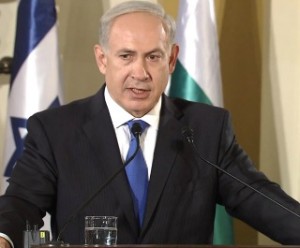 On a trip to Israel last month, I visited a friend who runs a small store in downtown Jerusalem,
my hometown. Outside, on the street, there were dozens of young American Birthright tourists. “Business must be
hopping, with all these Birthrighters,” I said. “Not quite,” my friend replied. “Their parents send them here
with pocket money, but stay home in the U.S., with their credit cards.”
On a trip to Israel last month, I visited a friend who runs a small store in downtown Jerusalem,
my hometown. Outside, on the street, there were dozens of young American Birthright tourists. “Business must be
hopping, with all these Birthrighters,” I said. “Not quite,” my friend replied. “Their parents send them here
with pocket money, but stay home in the U.S., with their credit cards.”
To my dismay, he said that as he saw it, American Jews don’t care enough about Israel’s future. They see Israel as a Jewish Disneyland of sorts, a place where they go for its history, but they don’t do enough to secure Israel’s future as a liberal democracy. This is not an unusual view among Israelis.
Albeit blunt, over-generalizing and overstated, my Israeli storeowner friend has a point. Sure, American Jews don’t vote in Israel. They don’t serve in the IDF and don’t pay taxes. They don’t have as much of a stake and as much of a say in Israel’s future as Israeli citizens do. But they definitely could do more to advance peace, reconciliation and tolerance in Israel, particularly when upsetting things are being done in Israel in their name.


 It seems there is no line Israeli Prime Minister Benjamin Netanyahu won’t cross to defend
settlements. Israeli law says settlers can’t steal Israeli-recognized Palestinian private land for their own
purposes? Netanyahu leaves no principle of rule of law unchallenged in the
It seems there is no line Israeli Prime Minister Benjamin Netanyahu won’t cross to defend
settlements. Israeli law says settlers can’t steal Israeli-recognized Palestinian private land for their own
purposes? Netanyahu leaves no principle of rule of law unchallenged in the 
 On Monday, September 5th, Decision at 50, a new organization composed of Shalom Achshav
(Peace Now), Israel’s preeminent peace movement, in cooperation with other Israeli civil society
organizations, issued the following press release:
On Monday, September 5th, Decision at 50, a new organization composed of Shalom Achshav
(Peace Now), Israel’s preeminent peace movement, in cooperation with other Israeli civil society
organizations, issued the following press release: